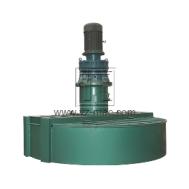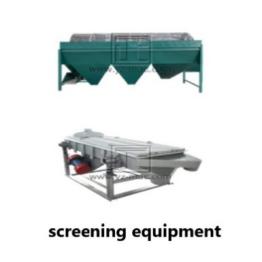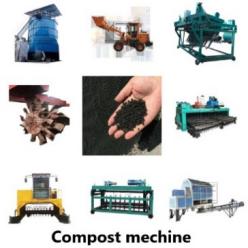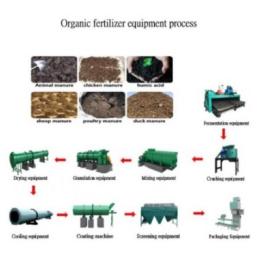Earthworm manure composting machine
An earthworm manure composting machine, also known as a vermicomposting machine, is a specialized equipment designed to facilitate the composting process using earthworms. This innovative machine combines the benefits of traditional composting with the power of earthworms to transform organic waste into nutrient-rich vermicompost.
Advantages of an Earthworm Manure Composting Machine:
Enhanced Composting Efficiency: Earthworms are highly efficient decomposers and play a crucial role in accelerating the decomposition process. An earthworm manure composting machine creates an optimal environment for earthworms to thrive, resulting in faster composting compared to traditional methods.
High-Quality Vermicompost Production: Earthworms break down organic waste into fine particles while enriching it with their castings, known as vermicompost. This vermicompost is a nutrient-rich fertilizer that enhances soil health, promotes plant growth, and improves overall soil structure and fertility.
Waste Reduction and Diversion: By utilizing earthworms to compost organic waste, the machine reduces the volume of waste going to landfills. It helps divert organic waste from the waste stream and contributes to sustainable waste management practices.
Low Energy Consumption: Earthworm manure composting machines operate with minimal energy requirements, making them an environmentally friendly option. They utilize the natural processes of earthworms to break down organic matter, minimizing the need for external energy sources.
Working Principle of an Earthworm Manure Composting Machine:
An earthworm manure composting machine typically consists of a series of stacked compartments or trays. The organic waste, along with bedding material, is added to the first compartment. Earthworms are introduced into the compartment, and as they feed on the organic waste, they produce vermicompost. The composting process is carried out layer by layer as the earthworms move through the trays, continuously feeding and producing vermicompost.
Applications of Earthworm Manure Composting Machines:
Small-Scale Organic Waste Management: Earthworm manure composting machines are ideal for small-scale waste management, such as in households, community gardens, and educational institutions. They enable individuals and communities to efficiently convert kitchen scraps, garden waste, and other organic materials into nutrient-rich vermicompost for gardening and plant cultivation.
Agricultural and Horticultural Practices: Earthworm manure composting machines have significant applications in agriculture and horticulture. Farmers and gardeners can utilize vermicompost as an organic fertilizer to improve soil fertility, enhance plant growth, and reduce reliance on synthetic fertilizers. The machines provide a reliable and sustainable solution for managing agricultural and horticultural waste, including crop residues and livestock manure.
Commercial Vermicomposting Operations: Earthworm manure composting machines are utilized in larger-scale vermicomposting operations. These machines can handle substantial volumes of organic waste, allowing businesses and organizations to produce vermicompost on a commercial scale. The vermicompost can be sold as a valuable product to farmers, nurseries, and gardening enthusiasts.
Environmental Restoration Projects: Earthworm manure composting machines play a role in environmental restoration initiatives. The nutrient-rich vermicompost produced can be used to rehabilitate degraded soils, enhance biodiversity, and support ecosystem restoration efforts.
An earthworm manure composting machine offers numerous advantages, including enhanced composting efficiency, high-quality vermicompost production, waste reduction, and low energy consumption. By harnessing the power of earthworms, these machines provide a sustainable and efficient solution for converting organic waste into nutrient-rich vermicompost. Earthworm manure composting machines have applications in small-scale organic waste management, agriculture, horticulture, commercial vermicomposting, and environmental restoration projects.








